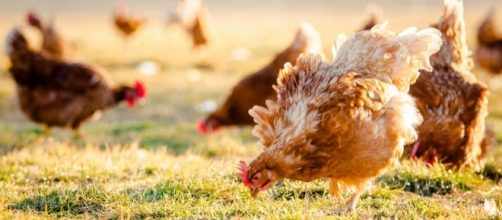Now that 2017 is upon us, many people are making resolutions to eat healthier and, according to recent studies, few foods have as many health benefits as Eggs. Millennials prioritize freshness and so they favor traditional egg-based breakfasts, as do many older people who cite how rich in nutrients eggs are. Specifically, pasture-raised eggs are known to be exceptionally healthy since they contain twice as much omega-3 fatty acid—which is good for your brain—than regular eggs. In addition, pasture-raised eggs also have 1/3 less cholesterol and ¼ less saturated fat and contain protein that effective quells hunger for long periods of time.
Pasture-raised eggs even look healthier, being of a more robust color than typical factory-farm eggs, since they tend to contain more vitamins and nutrients. They are also the go-to option for animal lovers due to the increased quality of life for hens.
Eggs
Often cited as a meal themselves, eggs are also essential ingredients in innumerable recipes—ranging from French toast to rainbow cookies. “Eggs contain all the building blocks essential for creating a living organism so it only makes sense that there’d be a whole lot of goodness packed into those shells,” stated Dan Brooks, the Brand Director of Vital Farms. “Even public policy makers now agree that eggs are one the best foods you can eat for a good balance of proteins, important amino acids, and valuable nutrients, while a better understanding of cholesterol balances means eggs are back on the menu for a lot of people.” Dan readily admits that he enjoys cooking eggs and prefers his to be poached so he can savor their natural rich taste.
“It can be a little tricky to master,” he explained, “but once you have it down, it’s one of the few ways you can really enjoy the whole egg to its best, with nice, fluff whites, and luscious, runny yolks!”
Chickens
Many animal rights advocates are also strong believers in pasture-raised eggs which are more ethically produced than standard eggs. Essentially, because the hens are allowed to freely roam on approximately 108 square feet of room per bird in an open pasture, their lives are much happier and the eggs they produce are much healthier than those from hens imprisoned in cages in factory farms. “Aside from being much nicer quality of life for the chickens, pasteurizing can further sterilize factory eggs,” Dan Brooks proclaimed.
“We constantly monitor the health of our flock and their living conditions, but believe that pasture-raising does create an inherently superior environment. We’ve grown to the size that we have in large part by finding ways to make a group of small family farms more efficient, both at the level of the individual farm and as a connected network.” Although the process of pasteurizing started out as a grassroots movement, many of the farm operations are highly sophisticated and include feature such as climate-controlled barns. “As more people learn the truth and realities of different egg-farming terms, and how pasture-raising is the only term that reflects the way the birds are raised, we do expect to see our eggs become increasingly popular,” Dan Brooks declared. “People care about where their food comes from, how it tastes, and how good it is. Only pasture-raising ticks all those boxes.”

